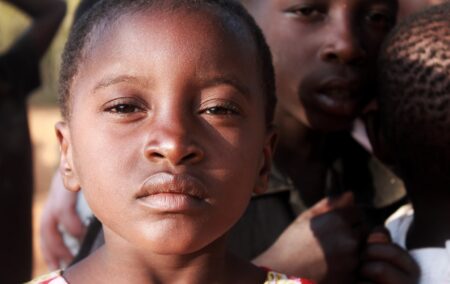An important note for South Africa was sounded in the latest and most dismal of the dismal United States (US) Democrat primary debates.
For the first time, Michael Bloomberg, ex-mayor of New York, founder of a financial services company and a publishing house, extraordinarily rich, joined the debate in front of the TV cameras. Until then, all of the leading Democrat candidates had been even more awful than President Trump (whose presidency is serving the country well despite his awfulness). Bloomberg had been spending colossal amounts of money on advertisements promoting his bid for the presidency and people were curious to see how he would perform in person. Mainly he did badly, but he did introduce, unintentionally, a very important argument over the fate of black people in the US.
The other Democrats, becoming even more awful, attacked him from the opening bell, especially on his past sins. He was accused of insulting and ill-treating women. He was trying to ‘buy the presidency’ (so are the rest but with less money – although still quite a lot of it). Most of all, he was a racist, and this was because of his past policy of ‘stop and frisk’ for policing in New York City.
Under his watch, the police were instructed to stop, question and frisk for illegal weapons suspicious-looking people on the streets. They concentrated on males aged between 14 and 24 and, more controversially, on African Americans (blacks) and Hispanics rather than whites and Asians. (For some strange reason ‘Hispanics’ or ‘Latinos’ aren’t classified as ‘whites’ in the US). The justification for this was that crime rates, especially murders, were far higher among blacks and Hispanics than among whites and Asians. During the years of stop and frisk, crimes rates did indeed drop but there is no strong evidence that it was the cause of the drop.
In 2011, as mayor, Bloomberg launched his ‘Young Men’s Initiative’ to improve the lives of young men from minority groups. He said:
Blacks and Latinos score terribly in school testing compared to whites and Asians. If you look at our jails, it’s predominantly minorities.
If you look at where crime takes place, it’s in minority neighborhoods… who the victims and the perpetrators are, it’s virtually all minorities.
Nevertheless, there’s this enormous cohort of black and Latino males, age 16 to 25, that don’t have jobs, don’t have any prospects, don’t know how to find jobs … [and] don’t know how to behave in the workplace.
What were the reasons for this? In 1965, Daniel Moynihan, a Democrat Senator and a social scientist, had written a famous report identifying the root cause: the breakdown of the black family. Increasingly black women were having children out of wedlock; teenage pregnancy was becoming more and more usual; 70% of black children were growing up without a father. Study after study shows that children without a father are far more likely to do badly at school and work, and to turn to crime – although of course there are some heroic single mothers. The grim truthfulness of the Moynihan Report offended ‘progressive’ people, who called him racist and who denied the importance of the ‘nuclear family’.
Why is black family life so poor compared to that of whites, let alone Asians? Slavery, however evil, is not the reason. Walter Williams, the author and economist (a black man brought up without a father), writes that under slavery in the US, black children were invariably born to a married mother and father, and that family life among blacks was at least as good as among whites. This continued after the abolition of slavery until the 1920s, and then black families began to break down. Various explanations have been offered, including an aggressive campaign among social welfare workers to persuade black girls that the state would provide for their children and they didn’t need a husband. There was no stigma for a woman having a baby without a husband; young black men could enjoy sex without any social pressure to be responsible or to care for their children or the women they had impregnated. Whatever the reason, something went disastrously wrong, and remains disastrously wrong.
In South Africa, the failure of the black family has had catastrophic consequences, and is perhaps the main cause of our appalling education outcomes for most black children, our horrible crime rates and our disastrous unemployment. Apartheid must certainly bear part of the blame. The forcible separation of black workers in the ‘white’ areas from their families in the ‘homelands’ had a devastating effect on the black family. But apartheid ended 30 years ago, and black family life seems worse than ever. Millions of black children are brought up without a father and many don’t even know who their father is.
The failure of the black family is perhaps the greatest of all of South Africa’s great problems, and the underlying cause for most of them.
The views of the writer are not necessarily the views of the Daily Friend or the IRR
If you like what you have just read, become a Friend of the IRR if you aren’t already one by SMSing your name to 32823 or clicking here. Each SMS costs R1. Terms & Conditions Apply.

